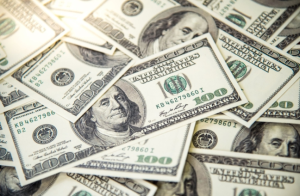
Following a hyper week that started with Japanese stocks tumbling to their most terrible misfortune since 1987’s Dark Monday, just for U.S. stocks to take off later to their greatest day starting around 2022, slight increases on Friday conveyed Money Road precisely back to where it started the week.
The S&P 500 rose 0.5% to shave what had been a fierce misfortune for the week down to a scarcely registerable 0.04%. The Dow Jones Modern Normal added 51 focuses, or 0.1%, and the Nasdaq composite climbed 0.5%.
The additions pulled the S&P 500 back inside 5.7% of everything time high set last month, after it had sunk almost 10% beneath that record during the week. It was a horrible return of unpredictability for a market that had been rising without a hitch, and a proportion of dread on Money Road momentarily flooded toward its most elevated level since the 2020 Coronavirus crash. It likewise may not be finished. Stresses are still high over the strength of the U.S. economy, and reports are expected one week from now on expansion, deals at retailers and different proportions of solidarity.
Be that as it may, on Friday, in any event, the temperament was one of quiet after more large U.S. organizations joined the heap revealing preferable benefit for the spring over experts anticipated.
Expedia Gathering hopped 10.2% subsequent to conveying more grounded results than estimate, however it saw a conditioning of interest in July like a few different organizations. Take-Two Intelligent rose 4.4% after the organization behind the Great Robbery Auto and NBA 2K computer games moreover revealed improved results than anticipated.
Prior in the day, files rose for the majority other securities exchanges around the world. They’ve likewise been frantic since last week as a result of various variables hammering together without a moment’s delay. At the front is the worth of the Japanese yen, whose unexpected and sharp fortifying as of late constrained mutual funds and different brokers to scramble out of a famous exchange all at once.
They had been acquiring Japanese yen for exceptionally minimal price and afterward contributing it somewhere else all over the planet. However, a climb to financing costs by the Bank of Japan constrained numerous to forsake the exchange simultaneously and sent worldwide business sectors staggering. A commitment by a top Bank of Japan official around mid-week not to raise rates further for however long business sectors are “unsteady” balanced out the yen.
Additionally burdening the market have been stresses over the easing back U.S. economy. A pile of more vulnerable than-anticipated reports constrained inquiries regarding whether the Central bank has kept loan fees at excessively high of an economy-crunching level for a really long time to beat expansion. A report last Friday showing a lot more fragile employing by U.S. businesses than anticipated was the lowlight.
Such concerns hauled Depository yields lower in the security market, and they fell again Friday. Yields sank as financial backers searched for more secure puts for their cash and as demands worked for more profound slices to rates coming from the Fed. The yield on the 10-year Depository tumbled to 3.94% from 3.99% late Thursday.
After apparently getting the Bank of Japan to quit climbing rates until further notice, Money Road’s objective “presently gives off an impression of being bossing the Fed into large rate cuts,” Bank of America tactician Michael Hartnett said in a BofA Worldwide Exploration report.
Reports one week from now could drive more swings for the market. On Thursday will come a report on how much customers are spending at U.S. retailers. Families at the lower end of the pay range have been battling for some time to stay aware of as yet rising costs, however financial specialists anticipate that the report should show a re-visitation of development after a slow down in retail spending during June.
One more report on Thursday will show the number of U.S. laborers are applying for joblessness benefits. The latest such report raised expects the economy after the earlier week’s terrified financial backers.
Approaching over them all will be the most recent reports on expansion. A worst situation imaginable would be on the off chance that Tuesday’s and Wednesday’s expansion reports show higher-than-anticipated ascents in costs at the discount and buyer levels, while the week’s different reports show a sharp debilitating of the economy.
The Central bank wouldn’t have a simple method for fixing such a harmful wreck. The national bank could bring down financing costs, which would give the U.S. economy a vertical push yet in addition take steps to demolish expansion. Or on the other hand it could keep on keeping its principal loan cost at a two-decade high. That would come down on expansion yet additionally cause more agony for the economy.
Certainly, despite the fact that the U.S. economy is easing back, it isn’t in a downturn. Numerous financial analysts actually see one as improbable.
A third element that sent business sectors turning as of late is expanded incredulity about Money Road’s hurry into computerized reasoning innovation, and how much benefit development it will truly deliver.
The free for all around simulated intelligence permitted a modest bunch of Large Tech stocks to drive the S&P 500 to many all-time highs this year, even as high rates burdened different region of the market. In any case, the gathering of stocks known as the “Grand Seven” lost energy last month in the midst of analysis financial backers overdid it and took their costs excessively high.
All of the Grand Seven rose Friday aside from Nvidia, which slipped 0.2%.
On the whole, the S&P 500 rose 24.85 focuses to 5,344.16. The Dow acquired 51.05 to 39,497.54, and the Nasdaq climbed 85.28 to 16,745.30.







